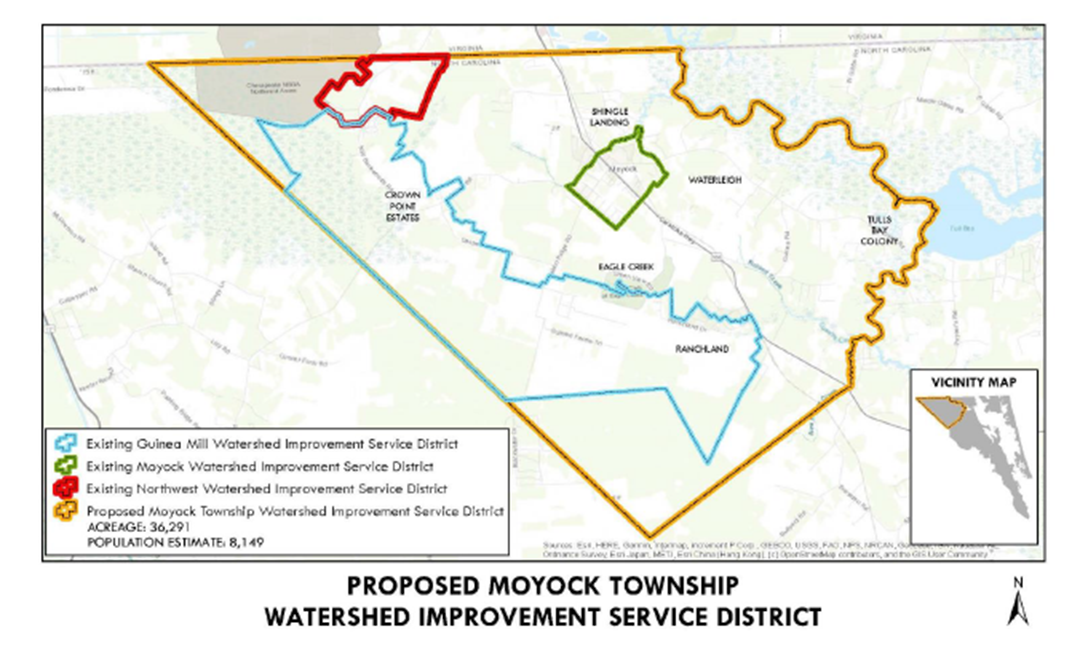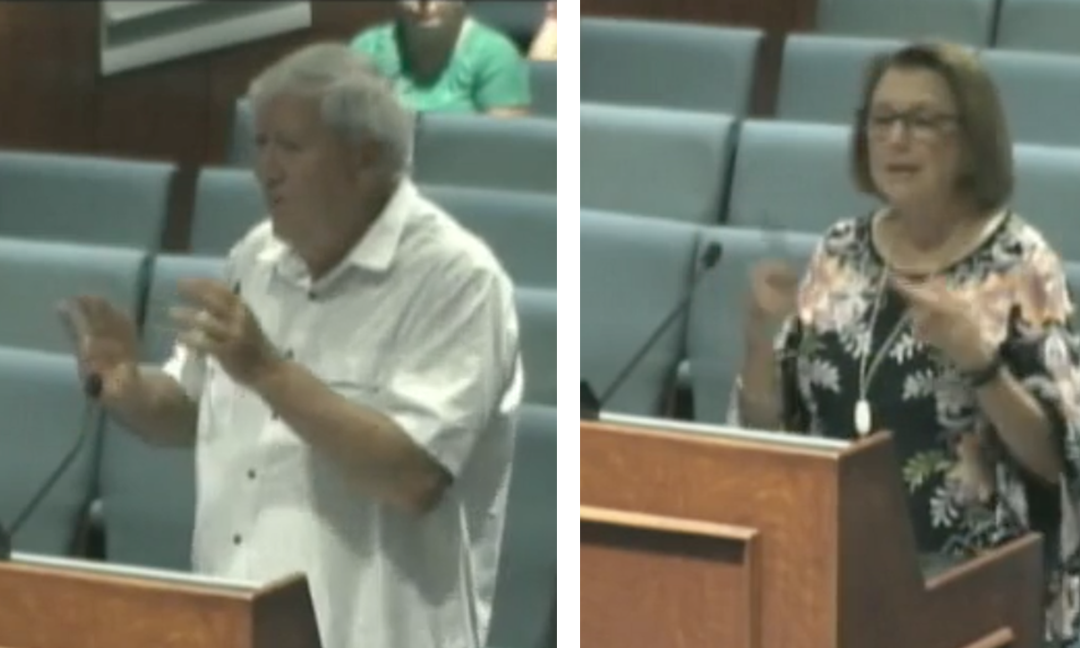Moyock residents share flooding concerns
Published 8:30 am Friday, June 18, 2021

- Proposed Moyock Township Watershed Improvement Service District. Courtesy Currituck County
|
Getting your Trinity Audio player ready...
|
Over a dozen community members spoke at the Currituck Board of Commissioners meeting Monday regarding expanding the Moyock Township Watershed Improvement Service District.
The purpose of the extended district is to collect more tax revenue to fund improvements to ditches and drainageways in the growing Moyock Township. According to a May 6 county report, these areas, which have traditionally been maintained by farmers, have not received the “maintenance and improvements necessary to address increasing stormwater runoff resulting in more frequent occurrence of nuisance and damaging flooding within the township and there is no entity that can access and enable adequate stormwater flow through major downstream outlets.”
There are currently three service districts within the township: Moyock Watershed Improvement Service District, Guinea Mill Watershed Improvement Service District and Northwest Watershed Improvement District, however, according to the report, “These small service districts are not of sufficient size to provide revenue and area that makes an impactful difference in drainage and flooding issues within the larger extent of Moyock Township.”
Once the Moyock Watershed Improvement Service District is expanded, the plan is to consolidate the other two, though there was some discussion at the meeting about keeping the Northwest Watershed district separate.
The proposed new district covers 36,291 acres, or 57 square miles, and has nearly 90 miles of ditches. The tax rate will be 1.5 cents per $100 valuation, which the county estimates will generate $130,950 in revenue to fund improvements including engineered studies, ditch widening and sediment removal from ditches. Properties valued at $250,000, for example, can expect to pay $37.50 per year. Farms with a deferred value of $1000 per acre will pay 15 cents per acre per year.
Most residents who spoke at the public hearing were more concerned about the general flooding in the county and what commissioners are planning to do about it rather than the actual district boundaries or the tax rates. One resident even requested higher tax rates for the service district because there is so much work to be done.

Melvin Evans, left, speaks at the Currituck Board of Commissioners meeting about drainage concerns. Debbie Evans, right, addresses commissioners regarding growth in Moyock Township. Currituck meeting screenshots
Harvey Roberts, 68, who has farmed in the county for 49 years said: “Farmers depend on drainage to make a living. Too much excessive rain will bankrupt you and put you out of business. All farms in Currituck County – our livelihood depends on drainage. We have to have drainage.”
Another longtime resident, Debbie Evans, agreed: “With regard to drainage, ask a farmer. The farmers know the land. Sometimes you don’t need to spend thousands and thousands of dollars in reports when you have access to farmers who know how the land drains.” Evans also asked commissioners to consider the impact that growth is having on the county: “We’re getting ready to consider this Currituck Crossing – how is that going to impact drainage? We need to stop and hold the development for a lot of reasons, not only drainage and watershed, and figure this out, get our schools in order. Stop it for now, let’s get a hold on it. Stop it. Please. Please.”
But according to county manager Ben Stikeleather, “The board does address drainage when subdivisions come through, especially larger ones. This isn’t necessarily to look into those subdivisions; it’s to help those outfalls.” He said that some subdivisions have gone beyond what was required to maintain drainage ditches.
“It’s not a perfect plan; you’re not going to see success overnight,” Stikeleather said. “This is a measured approach. If you’re at the high point, seven or eight feet above sea level, you don’t see the impact of that rain, but the person who’s at two feet sees the impact,” he said.
“We see it on Facebook, we see the complaints,” said commissioner Bob White. “The board decided that at minimum we can address some of these issues in these outfalls. We looked at the whole area – it’s all affected in some way – we wanted to do something in some way that would be meaningful. Are you still going to flood? Yes. The goal is to lessen the effects . . . maybe it’ll be out in 48 hours, not 5-7 days.”
RECENT HEADLINES:
Currituck approves 2021-22 budget, wild horse management agreement
Spring Arbor of Outer Banks celebrates military stories; residents brought together in gratitude





